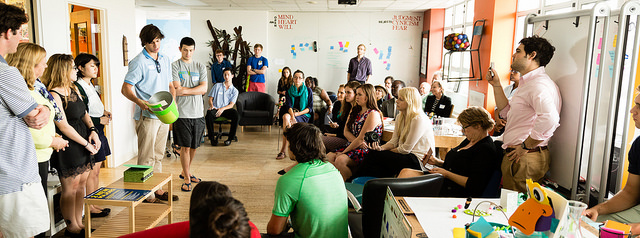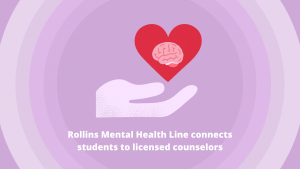In the constant effort to turn students into scholars and leaders, a group of Rollins faculty designed a new Social Innovation (SI) major, with Communications Professor Dr. Anne Stone as the program’s director.
Many fields of study demand specialization, but the SI major is all about broadening—integrating different disciplines to serve students’ particular passions and goals post-graduation.
SI majors will be planning for the future from the moment they begin. This is in part because the major allows students to choose classes anywhere from political science to theatre, and anthropology to environmental studies, a combination that depends on the type of current issue that the student wants to tackle after graduating.
For instance, if a student has a passion for revitalizing the arts in Central America, they could integrate courses in political science, theatre, sociology, social entrepreneurship, anthropology, and studio art. The result is the blend of knowledge needed to begin the planning of monumental projects and large-scale initiatives.
This major stresses pragmatism and broadening above all else. Students not only should, but must, study different subjects, as they are required to take classes from at least three different disciplines.
All of these are geared toward a student’s planned career—every single course is expected to be practical in some way.
“The SI major is one of many pathways on campus that can help students become changemakers,” wrote Dr. Dan Chong, assistant professor of Political Science and one of the minds behind the major.
“So, for example, a student who is interested in girls’ education in developing countries could take classes from SWAG, political science, education, and social entrepreneurship, and gain skills in nonprofit management, fundraising, teaching, cross-cultural communication, and more,” said Chong.
SI majors will also have a constant portfolio throughout their years at Rollins. This portfolio will include, among other items, their curricular plans, reflective papers about their own integrations, and their capstone projects.
At this moment, the major requires 10 courses. One of these is Intro. to Social Innovation, which will be added to the Fall 2018 course schedule. After that, the major requires a core skills class, core topics class, three skill electives, three topic electives, and an independent capstone.
Everything following Intro. to Social Innovation is largely up to each student.
Each of the categories offers at least a dozen different courses from almost as many different departments.
Students are not limited to a single department for any requirement, and they are free to blend disciplines according to their revised and properly-structured curricular plan.
The SI major also stresses a great deal of experiential learning from students. Aside from requiring at least one community engagement course, the major requires participation in three activities. These can range from field studies, summer programs, and Immersions to internships, conferences, and research projects.
SI majors must have in mind some sort of change they want to enact in the world, and their wide selection of courses is designed to turn them into leaders of that change.












Be First to Comment